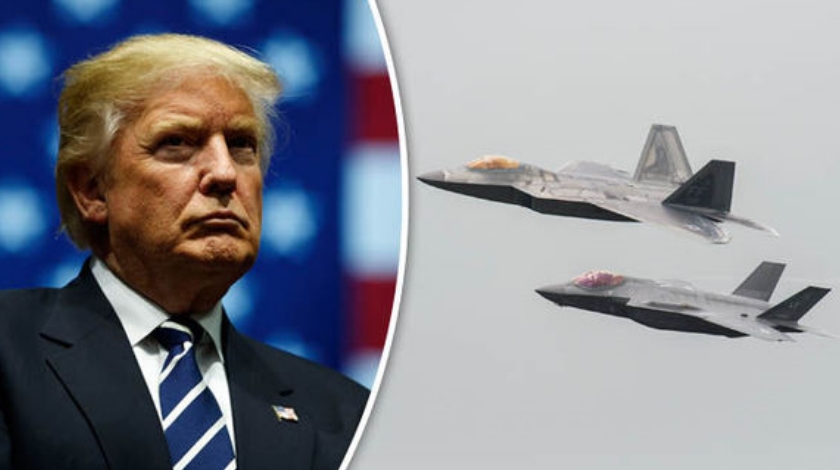Photo: express.co.uk
Reading Time: 2 minutesAfter campaigning to reduce wasteful government spending, US President-elect Donald Trump announced that he is poised to modify the F-35 Joint Strike Fighter program, on the same day that Israel was supposed to receive its first two F-35 fighters.
The markets quickly responded to Trump’s post-midnight tweet, causing Lockheed Martin’s shares to tumble during morning trading. US pilots that have test-flown F-35s say they prefer the flight capabilities of the F-22.
Some $400 billion has been spent by the US on the beleaguered program to date, but Washington is not Lockheed Martin’s sole source of revenue for its F-35s.
Israel, as part of the massive $38 billion ten-year military handout it is receiving from the US, will acquire 50 F-35s over the coming years, and just last week Japan received its first F-35 at the Luke Air Force Base in Arizona.
But if it is not mid-flight fires reigning havoc on the F-35s, it’s the weather. The highly-anticipated arrival of the next-generation stealth warcraft in Israel has been postponed due to poor weather in Italy, where the jets will depart. US Defense Secretary Ashton Carter was set to attend a celebration in Israel as the country received its first two F-35s. The F-35s will no longer be arriving on Monday, however.
Regarding the F-35 acquisitions, Israel will be “very strong for a long time,” an Israeli air force officer told Reuters. “It’s a message for everybody that Israel will keep on holding the high-end technology in this area.”
F-35s have suffered a series of mechanical and technical failures. In October, 15 operational F-35A aircraft were indefinitely grounded to repair insulated coolant tubes. Officials also indicated that the F-35A’s ejector seats could also jeopardize the lives of pilots weighing fewer than 165 pounds.
Further, the $400,000 helmets worn by F-35 pilots have reportedly blinded them with a green glow, an issue that makes landing at night especially difficult.
Beyond technical issues, last week an internal memo surfaced demonstrating that Michael Gilmore, chief director of testing at the Pentagon, accused other Pentagon officials of preparing to talk about the F-35s in a way he described as misleading at best and pure deception at worst.

